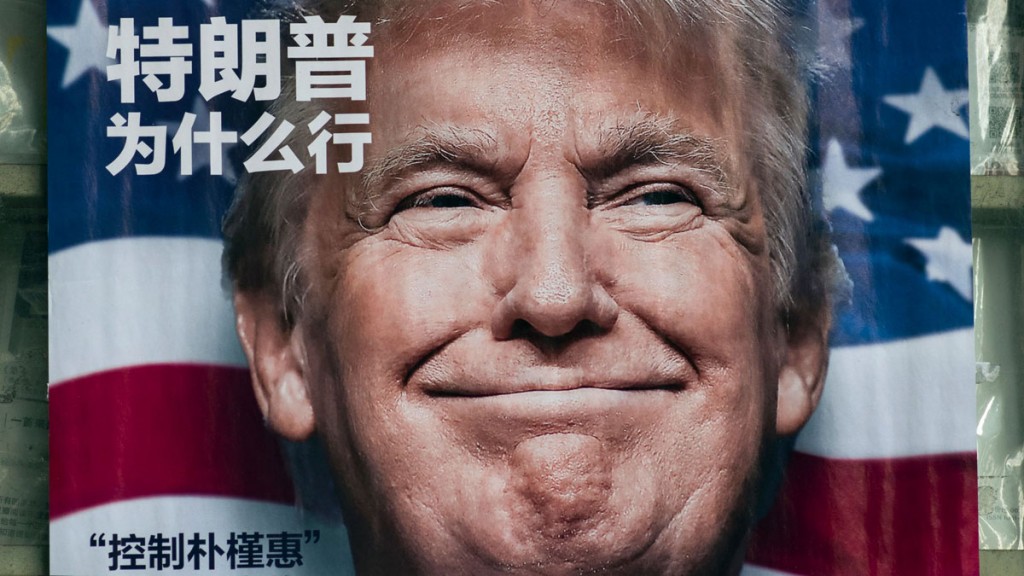
“Can we have our ball back, please?”
That’s what America ended up saying to China at the end of last week.
The ball in question was an underwater drone that got nabbed near The Philippines. The Chinese – having kept everyone in suspense for a bit – have now agreed to return it.
But unfortunately, this isn’t the end – not by a long chalk…
A US submarine goes missing
On Thursday, a Chinese naval vessel grabbed an unmanned underwater survey drone belonging to the US.
According to the Pentagon, says the Wall Street Journal, the drone was “gathering oceanographic data near the Philippines”. The Pentagon says it wasn’t doing anything naughty, but according to “defence experts”, these drones are often used to track foreign submarines and help American ones get around.
Anyway, on Saturday, the Pentagon’s press secretary said that the US had “secured an understanding” and that China would return the drone.
Obviously, in between times, president-elect Donald Trump had got onto Twitter, his favourite means of communication, and issued a few helpful comments, like, “we should tell China that we don’t need the drone they stole back – let them keep it!” But that’s what we’re learning to expect from Trump.
Here’s what’s a little more concerning: this drone was picked up in international waters; it wasn’t swimming around within the “nine-dash line”.
A quick bit of background: that “nine-dash line” refers to a line drawn on a map which depicts the bit of the South China Sea that China reckons it owns. Pretty much everyone else’s maps say something different. But even so, China is quite happy to “confront US vessels” it finds in that area.
But this drone was picked up in genuinely international waters, according to the WSJ. Apparently this is a rare, indeed “possibly unprecedented, instance of China directly impeding US naval surveillance” in this way.
There are a few interpretations. The US and the Philippines are allies, but the new president of the Philippines seems keen to “pivot” towards China. So this could be a test of that resolve. Also, the US is at a leadership transition point. If you can’t push your luck now, when can you push it?
They’re both pretty plausible points. But I have to say that an even more plausible one is that the Chinese are reacting to Trump’s recent conversation with Taiwan’s president. The idea that Taiwan’s status – and the “One China” policy – might be up for negotiation again is a deal breaker for China (or so I’m told). So this might be China’s way of gently telling Trump to back off.
What this means for your money
Does it matter for investors? This isn’t necessarily a new thing. In 2001, reports The New York Times, the Chinese sent a US spy plane back in bits to the new president George W Bush. In 2009, new president Barack Obama saw an incident where a US ship was “swarmed” by Chinese vessels.
So this could just be the Chinese way of initiating a new president – like giving him the bumps on his birthday, maybe.
However, equally, this isn’t just going to go away. John McCain, Republican senator and former presidential candidate, already told CNN that China was guilty of a “gross violation of international law”. He’s also criticising past US foreign policy – “There’s no strength on the part of the US. Everybody’s taking advantage of it. And hopefully that will change soon.”
Meanwhile, says the New York Times, America’s allies are worried about the lack of a response. “Allies and observers will find it hard not to conclude this represents another diminishment of American authority in the region”, said Douglas H Paal of the Carnegie Endowment for International Peace.
Japan, in particular, can’t be happy about it. If China decides that it makes the rules in the South China Sea, that’s not going to please Shinzo Abe’s government. But it is going to make it easier for him to abandon Japan’s pacifist status.
It’s yet another reason I find defence stocks a very compelling theme right now. Yes, Trump sends off the odd tweet complaining about the price of US aircraft. But regardless of Trump’s interventions, the offsetting increase in insecurity in the world order is likely to mean higher spending pretty much regardless.
If other countries believe that “Pax Americana” has reached its limit (and it certainly seems that way), then they’ll have to increase the proportion of their GDP that they spend on their own defence.
It’s not a reassuring idea. But it does look to be the way things are going. Our roundtable experts will have a lot more on this in the first issue of MoneyWeek of the New Year.
Which is another good reason for you to subscribe right now.